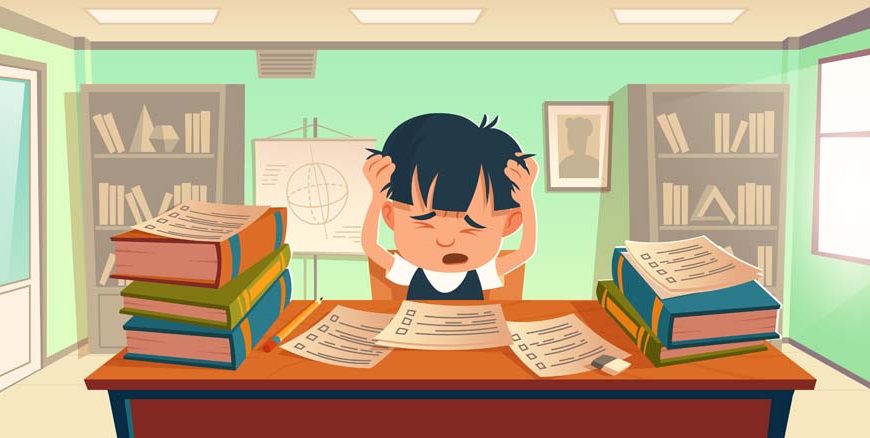Empowering Children: Stress Management Techniques for a Joyful Childhood
Picture this: little Aryan, all of 6 years old, returning home from school with furrowed brows, a result of the big maths test coming up. Or little Priya, age 7, nervously biting her nails, worried about fitting in with her classmates. While these may sound like scenarios from a movie, they’re the stark realities many Indian children face today. Stress, a concept we associate with adulthood, has surreptitiously found its way into the world of our young ones. The silver lining? Children, with their resilient and malleable minds, can be taught to manage and overcome these pressures effectively. The solutions lie in various stress management techniques tailored specifically for their tender age.
India, with its diverse cultures and rapidly growing urban centres, witnesses this phenomenon more than ever. As parents, guardians, and educators, it becomes imperative to introduce young minds to effective stress management life skills early on. Let’s delve into the various stress management techniques tailored for the young people of India:
Deep Breathing Exercises: Start simple. Teach children the art of deep breathing. Ask them to inhale slowly, hold their breath for a few seconds, and then exhale. This act of focusing on their breath can anchor them, reducing immediate feelings of stress. With regular practice, this technique can enhance their concentration and help in emotional regulation. Over time, children can use it as a self-soothing tool in stressful situations.
Storytime Relaxation: Indian folklore and stories are rich with moral values and calming narratives. Pick a soothing story and read it aloud. Encourage your child to visualise the scenes, thereby offering them a temporary escape from their anxieties. These narratives can teach life lessons while relaxing the mind. A regular storytime can foster a bond between you and your child, offering comfort and security.
Artistic Expression: Whether it’s through drawing, painting, or even clay modelling, letting children express themselves artistically can be therapeutic. It serves as an avenue for them to channel their feelings and worries, translating them into colours and shapes. Each creation is a reflection of their inner world, giving adults insights into their emotions. Art also allows them to experiment, fostering creativity and imagination.
Dance It Out: With the myriad of vibrant dance forms that India offers, from Bharatanatyam to Bhangra, dance can be both a cultural education and a stress-buster. Playing music and allowing children to move freely can elevate their spirits and reduce stress. It’s a wonderful way to blend physical activity with emotional expression. Dancing also aids in developing rhythm, coordination, and self-confidence.
Nature Walks: In the midst of urban chaos, it’s essential to reconnect with nature. Parks, botanical gardens, or even a walk by the river can offer tranquillity. The natural environment acts as a gentle reminder of the world’s vastness, putting their worries into perspective. Nature’s rhythms have a calming effect, promoting relaxation and introspection. Observing the beauty of flora and fauna can instil a sense of wonder in children.
Mindful Eating: Introduce children to the concept of mindfulness through food. Indian cuisine, with its burst of flavours, offers a fantastic opportunity for this. Teach them to eat slowly, savouring each bite, focusing on the texture, taste, and aroma of their food. This practice fosters a deeper appreciation for the culinary arts. It also helps with digestion and ensures they’re more in tune with their hunger and satiety signals.
Yoga: Rooted in the Indian tradition, Yoga isn’t just about physical fitness. The various asanas and meditative practices can significantly enhance mental well-being. Even simple poses, when done with awareness, can be effective stress management techniques. Introducing children to yoga at a young age can lay the foundation for a balanced life. It harmonises the body, mind, and spirit, cultivating inner peace.
Gratitude Journaling: Encourage your child to maintain a daily journal where they jot down three things they’re grateful for. This simple act shifts their focus from what’s causing stress to what brings them joy. Reflecting on the positives nurtures an optimistic mindset. Over time, this practice can enhance their overall life satisfaction and resilience.
Guided Imagery: A technique that can be tailored using Indian contexts. Guide your child to imagine a serene place, like the calm beaches of Goa or the majestic Himalayas. This mental vacation can lower cortisol levels and induce calmness. Such visualisation exercises can be used before bedtime to promote restful sleep. They also encourage a vivid imagination and an appreciation for the beauty of India.
Play: Often underrated, the simple act of playing is therapeutic. Be it traditional Indian games like ‘Kho Kho’ or modern board games, playing stimulates the mind in a positive way, offering a break from stressors. It promotes social interaction, team spirit, and cognitive development. More than just fun, play is a child’s way of understanding the world and their place in it.
The Role of Parents and Educators
It’s important to understand that while children can be taught these stress management techniques, the responsibility primarily rests on the shoulders of parents and educators. Children often mirror the adults around them. If they observe their primary caregivers handling stress with grace and employing these techniques, they’re more likely to imbibe and practise them. Schools, in particular, need to integrate stress management skills into their curricula. Apart from the standard subjects, sessions on mindfulness, art therapy, or even simple breathing exercises can be invaluable. It’s not just about raising a generation that scores high marks, but about nurturing a generation that’s emotionally intelligent and mentally robust.
Think back to the sweet memories of your own childhood – the innocent laughter, the playful afternoons, and the fearless dreams. Wouldn’t you want the same for the young ones today? The likes of Aryan and Priya deserve a childhood stress is merely a word in the dictionary, not a daily battle. By introducing them to these effective stress management techniques, we’re handing them the shield and armour to combat the dragons of anxiety and pressure. And as they grow, these skills won’t just be techniques; they’ll transform into life-long companions, ensuring their journey is not just successful but also joyful and fulfilled.
For a strong foundation, it’s essential to begin at the right place. EuroKids, one of India’s leading preschool chains, believes in the holistic development of every child. Not only do we focus on academics, but we seamlessly integrate vital life skills into our specially crafted curriculum. With an environment that promotes mental well-being and emotional intelligence, EuroKids ensures that your child is equipped not just for school, but for life’s many challenges. Choose EuroKids, and gift your child the bliss of a balanced, stress-free childhood.
















